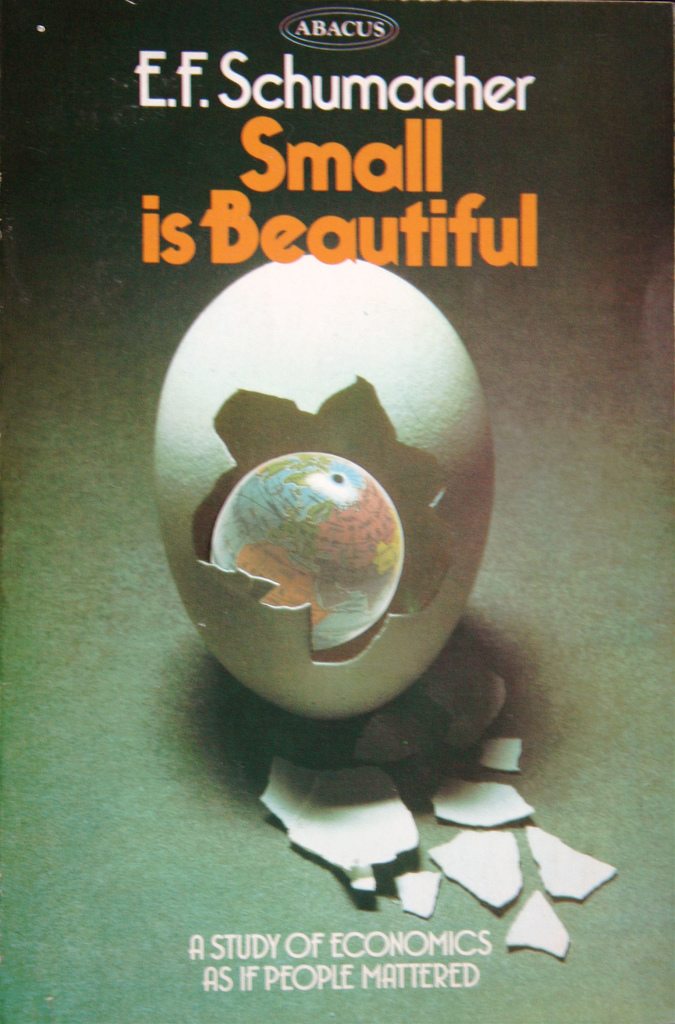
Small is Beautiful (1973) E.F. Schumacher
At the center of Schumacher’s criticism is a technology that has become increasingly distant from man and his needs, alienating him from his work and depriving him of any leisure. He counters this with the idea of a “balanced technology” that is both cheap and suitable for use on a small scale and meets man’s need for creative activity. He is primarily concerned with the social value of work and less with the goods produced in the process. He pleads for the freedom of small productive units that are embedded in a global system of order. For people can only be themselves in small, manageable groups. We must therefore learn to imagine articulated structures within which a multitude of small units can assert their place. If our economic thinking doesn’t grasp that, it’s no good. Moreover, for Schumacher, real education is worthless if it does not include metaphysical aspects. An education that does not clarify our basic beliefs is a mere unreflective training and thus a weakness towards ourselves. He criticizes not only the educational institutions, but above all the sciences, which are taught without clarifying their presuppositions and therefore mistakenly take these very presuppositions as their results. A holistic ethics, the exit from the growth society with its unrestrained consumption of resources, the decentralization of production coupled with the clarification or renewal of our metaphysical convictions are basic prerequisites for a survivable and sustainable society
Justus Theinart
Hochschule Darmstadt
Schumacher, EF (1973) Small is Beautiful. Blond and Briggs
ISBN:978-0-06-091630-5
